Sustainable volunteering is a way of giving back to the community or environment without leaving a negative impact. It focuses on creating a positive, lasting effect on communities by respecting their needs and sensitivities. This type of volunteering considers environmental, social, and economic factors to ensure that the help provided today doesn’t become a burden tomorrow.
What are UN SDGs?
Knowing about the UN SDGs is a great way to check if your volunteering is sustainable.
The United Nations Sustainable Development Goals (UN SDGs) were established in 2015, aiming to tackle challenges such as poverty, inequality, climate change, and more. These goals were designed to be interconnected, recognizing that success in one area affects outcomes in others. The process of creating the SDGs involved a wide range of stakeholders and the general public, ensuring that the goals reflected actionable priorities for a sustainable future.
Here is a list of all 17 UN SDGs:
- No Poverty – End poverty in all its forms everywhere.
- Zero Hunger – End hunger, achieve food security and improved nutrition, and promote sustainable agriculture.
- Good Health and Well-being – Ensure healthy lives and promote well-being for all at all ages.
- Quality Education – Ensure inclusive and equitable quality education and promote lifelong learning opportunities for all.
- Gender Equality – Achieve gender equality and empower all women and girls.
- Clean Water and Sanitation – Ensure availability and sustainable management of water and sanitation for all.
- Affordable and Clean Energy – Ensure access to affordable, reliable, sustainable, and modern energy for all.
- Decent Work and Economic Growth – Promote sustained, inclusive, and sustainable economic growth, full and productive employment, and decent work for all.
- Industry, Innovation, and Infrastructure – Build resilient infrastructure, promote inclusive and sustainable industrialization, and foster innovation.
- Reduced Inequalities – Reduce inequality within and among countries.
- Sustainable Cities and Communities – Make cities and human settlements inclusive, safe, resilient, and sustainable.
- Responsible Consumption and Production – Ensure sustainable consumption and production patterns.
- Climate Action – Take urgent action to combat climate change and its impacts.
- Life Below Water – Conserve and sustainably use the oceans, seas, and marine resources for sustainable development.
- Life on Land – Protect, restore, and promote sustainable use of terrestrial ecosystems, sustainably manage forests, combat desertification, and halt and reverse land degradation and halt biodiversity loss.
- Peace, Justice, and Strong Institutions – Promote peaceful and inclusive societies for sustainable development, provide access to justice for all, and build effective, accountable, and inclusive institutions at all levels.
- Partnerships for the Goals – Strengthen the means of implementation and revitalize the global partnership for sustainable development.
By choosing to volunteer in programs that target these goals, individuals can play an essential role in driving positive change and fostering a sustainable future. Sustainable volunteering means not just giving your time and effort but doing so in a way that contributes to long-lasting benefits for the planet and its inhabitants.
Common Mistakes to Avoid
When volunteers travel abroad to participate in volunteer programs, their intentions are often well-meaning. However, without proper guidance and preparation, they can inadvertently make mistakes that are not sustainable for the communities they aim to help. Here are a few common mistakes volunteers abroad make that are not sustainable:
- Not Researching the Volunteer Program Thoroughly
Many volunteers choose programs based on emotion rather than research. Not all volunteer programs are created equal, and some may not have a positive or sustainable impact on the community. Volunteers should look for programs that work closely with local communities and have clear, sustainable goals.
- Ignoring Local Culture and Practices
Volunteers sometimes fail to respect local customs and traditions, which can lead to cultural insensitivity and misunderstandings. Sustainable volunteering involves learning about and respecting the local culture, including language, social norms, and traditions.
- Taking Jobs Away from Local Workers
Some volunteering programs, particularly those that involve unskilled labor, can inadvertently take away jobs from locals. Sustainable volunteering supports the local economy by employing local staff or complementing, rather than replacing, local labor.
- Failing to Follow Environmental Best Practices
Volunteers might unknowingly contribute to environmental degradation by not following best practices, such as proper waste disposal, water conservation, and minimizing carbon footprints. Sustainable volunteering includes being mindful of one’s environmental impact and actively working to minimize it.
- Assuming to Know What’s Best for the Community
Volunteers may come with preconceived notions about what the community needs, without actually listening to the community members themselves. Sustainable volunteering requires a collaborative approach that values the input and expertise of local residents.
- Not Preparing Adequately for the Experience
Lack of preparation can lead to volunteers being ineffective or even a burden on the resources of the program or community. Before departing, volunteers should ensure they have the necessary skills, knowledge, and cultural understanding to contribute positively.
By being mindful of these pitfalls, volunteers can have a more positive and lasting impact on the communities they serve.
How to Choose a Sustainable Program Provider
Choosing a sustainable program provider for volunteering is crucial for ensuring that your efforts contribute positively and effectively to the community or cause you care about. Here are some tips on how to select a program provider that prioritizes sustainability:
- Research the Organization’s Mission and Values
Look for organizations whose missions align with sustainable practices and goals. Their values should emphasize long-term community development, environmental conservation, and responsible volunteering practices. A commitment to sustainability should be evident in their mission statement and organizational goals.
- Evaluate Their Impact on the Community
Investigate how the organization’s projects have impacted the communities they serve. Look for evidence of positive, lasting changes and testimonials from local community members. Sustainable program providers should work closely with local communities to address their needs and ensure projects are beneficial in the long term.
- Assess Their Environmental Practices
Consider how the organization addresses environmental sustainability. This can include the use of resources, efforts to minimize carbon footprint, and projects focused on environmental conservation. Organizations that prioritize sustainability will implement practices that reduce environmental harm and promote conservation.
- Transparency and Accountability
Choose organizations that are transparent about their operations, finances, and the impact of their projects. They should provide clear information on how resources are allocated and the outcomes of their volunteering projects. Accountability measures, such as external audits and impact reports, are good indicators of a sustainable program provider.
- Support for the Local Economy
Sustainable volunteering should support, not undermine, the local economy. Look for organizations that employ local staff, purchase local materials, and involve community members in decision-making processes. This approach ensures that the benefits of volunteering extend to the local economy and help build community resilience.
- Volunteer Training and Preparation
A sustainable program provider will offer comprehensive training for volunteers, preparing them to work effectively and respectfully within the community. This includes cultural sensitivity training, information on sustainable practices, and education on the specific challenges faced by the community
- Reviews and Feedback from Previous Volunteers
Reading reviews and feedback from past volunteers can provide insight into the organization’s practices and the sustainability of its projects. Look for feedback on how the organization addresses sustainability and the overall volunteer experience.
- Partnerships with Local and Global Organizations
Organizations that engage in partnerships with local NGOs, government bodies, and international sustainability networks are often better positioned to create impactful and sustainable projects. These partnerships can enhance the resources, expertise, and legitimacy of volunteering efforts.
By choosing a provider that aligns with sustainable practices, volunteers can ensure their time and efforts contribute positively to making a lasting difference.
Here is a list of our top picks of sustainable and ethical providers:
International Volunteer HQ (IVHQ) stands out as a sustainable volunteer provider, being the first and only volunteer travel company to achieve Certified B Corporation status since 2015. This certification underscores IVHQ’s commitment to the highest social and environmental standards, emphasizing sustainability, inclusivity, and quality. As a member of the UN’s Volunteer Groups Alliance, IVHQ ensures that all its volunteer projects advance one or more of the UN’s Sustainable Development Goals. With operations certified as Zero Carbon, IVHQ actively offsets its carbon footprint, advocating for ethical volunteering programs run by locals to ensure meaningful community engagement and environmental conservation.
Explore the following ways you can contribute sustainably with IVHQ:
- Animal Care in Cambodia: Volunteer to rescue, care for, and provide companionship to neglected cats and dogs in Siem Reap or Phnom Penh, contributing to UN Sustainable Development Goal #15: Life on Land.
- Environmental Education Volunteering in Bali: Teach local elementary school children about recycling, sustainability, and conservation, aligning with UN Sustainable Development Goal #11: Sustainable Cities and Communities.
- Turtle Conservation Volunteer Program in Madagascar: Participate in efforts to protect endangered turtle populations through nesting, research, and community education, supporting UN Sustainable Development Goal #14: Life Below Water.
- Agriculture Volunteer Program in Ghana: Aid local farmers in sustainable agriculture practices to provide food for childcare centers, addressing UN Sustainable Development Goal #8: Decent Work and Economic Growth.
GoEco sets the standard for sustainable volunteerism, promoting over 150 volunteer and travel programs across 50 countries, all rigorously vetted for authenticity. As pioneers in applying the Ecological Footprint methodology, GoEco evaluates the sustainability of volunteer tourism comprehensively, from departure to return. They champion long-term sustainable goals, partnering with organizations that provide detailed quarterly reports on achievements and research updates, ensuring volunteers contribute to real, measurable impacts. By encouraging longer stays, recycling, energy saving, public transportation, and locally sourced food, GoEco not only minimizes the ecological footprint of each volunteer but also amplifies the programs’ overall impact, embodying their commitment to ethical and impactful volunteering.
Discover how you can make a sustainable impact through GoEco’s programs:
- Zimbabwe – African Wildlife Orphanage: Volunteers work with a range of animals from monkeys to lions at one of Africa’s largest wildlife sanctuaries and rehabilitation centers, focusing on animal care and releases, contributing to UN Sustainable Development Goal #15: Life on Land.
- Costa Rica – Sustainable Organic Coffee Farming: Support eco-friendly coffee production on small local farms, learning about fair trade and organic farming practices, aligning with UN Sustainable Development Goal #12: Responsible Consumption and Production.
- Portugal – Marine Conservation in Lisbon: Participate in scuba diving to clean up pollution and protect marine life in the Atlantic, meeting UN Sustainable Development Goal #14: Life Below Water by combating marine debris and supporting ecosystem health.
- Cambodia – Sustainable Community Development: Assist in improving education for underprivileged children and engage in construction projects for sustainable school development, supporting UN Sustainable Development Goal #4: Quality Education by providing free education and environmental awareness.
Maximo Nivel provides volunteer programs in Latin America with a strong emphasis on education, conservation, and community development. They support sustainable practices by engaging volunteers in projects that are both meaningful and have a lasting impact on the communities they serve.
Delve into sustainable ways to give back with Maximo Nivel:
- Volunteer in Construction & Renovation: Engage in hands-on construction and renovation work to build vital community infrastructure, from schools to housing, in Central and South America, supporting UN Sustainable Development Goal #11: Sustainable Cities and Communities by enhancing infrastructure and accessibility.
- Volunteer with Animals & Wildlife: Contribute to the care and rehabilitation of abandoned and at-risk animals across Costa Rica, Guatemala, and Peru, promoting UN Sustainable Development Goal #15: Life on Land by improving animal welfare and conservation efforts.
- Volunteer in Amazon Conservation & Reforestation: Volunteer in the heart of the Peruvian Amazon to plant trees, monitor wildlife, and educate communities, advancing UN Sustainable Development Goal #13: Climate Action through efforts to combat climate change and protect diverse ecosystems.]
- Volunteer in Eco-Agriculture: Participate in sustainable and organic farming practices in Costa Rica, Guatemala, and Peru, supporting UN Sustainable Development Goal #12: Responsible Consumption and Production by fostering environmentally friendly agriculture and community development.
Projects Abroad champions sustainable volunteerism by integrating high-impact projects with low-impact travel practices, focusing on benefiting local communities and the environment. As a pioneer in applying the Ecological Footprint methodology, they meticulously measure and offset carbon emissions, funding initiatives like Ecologi to balance their footprint and support sustainable livelihoods. Their commitment extends to biodiversity through vigilant monitoring and ecological restoration, ensuring their projects promote balanced ecosystems. Projects Abroad’s approach underscores a holistic commitment to sustainability, making meaningful, long-term contributions to global challenges, and setting a benchmark for responsible volunteer travel.
Consider these sustainable approaches to contributing with Projects Abroad:
- Peru – Animal Rehab in the Amazon Rainforest: Engage in wildlife rehabilitation, reforestation, and conservation efforts in the Amazon Rainforest, aiding in the protection and study of indigenous species and plants. This project offers a unique opportunity for hands-on experience in animal conservation, sustainable farming, and environmental education, contributing to UN Sustainable Development Goal #15: Life on Land by preserving biodiversity and promoting sustainable use of ecosystems.
- Thailand – Diving & Coral Reef Protection: Participate in marine conservation efforts in Thailand, including coral reef restoration, debris removal, and biodiversity surveys. Volunteers gain diving certifications and work closely with conservationists to protect marine life, aligning with UN Sustainable Development Goal #14: Life Below Water by combating marine pollution and protecting aquatic ecosystems.
- Tanzania – Women’s Empowerment: Support gender equality and empower women in Tanzania through skill development, education, and awareness-raising activities. This project aims to improve the futures of women in disadvantaged communities, supporting UN Sustainable Development Goal #5: Gender Equality by promoting women’s empowerment and addressing gender disparities.
- Mexico – Migrant and Refugee Support Project: Provide aid and support to migrants and refugees in Mexico, offering services such as clothing, meals, and care in a shelter environment. Volunteers assist in the collection of demographic data and support the well-being of individuals affected by economic decline and conflict, contributing to UN Sustainable Development Goal #10: Reduced Inequalities by supporting the rights and needs of migrants and refugees.
African Impact believes that volunteering should benefit both the volunteers and the vibrant communities and ecosystems of Africa. With a commitment to real, measurable change, African Impact ensures every project drives toward long-term sustainability. The organization works closely with local communities, employing local staff and prioritizing projects with community buy-in and ownership. Through rigorous monitoring, evaluation, and a steadfast dedication to ethical practices, African Impact creates sustainable volunteer experiences that embody the spirit of Africa and foster mutual growth and understanding.
Explore avenues for making a sustainable difference with African Impact:
- Reforestation Volunteer Project in Kenya: Volunteers engage in reforestation activities, environmental education, and community support in the Kenyan highlands, contributing to UN Sustainable Development Goal #15: Life on Land by restoring biodiversity and ecosystem services.
- Waste Reduction Volunteer Program in Zambia: This innovative project involves community engagement, sustainable building with EcoBricks, and environmental conservation workshops in Zambia, aligning with UN Sustainable Development Goal #12: Responsible Consumption and Production by managing waste sustainably and encouraging recycling.
- Shark Conservation Volunteering in South Africa: Assist in great white shark conservation efforts in Gansbaai, South Africa, through research, eco-tourism, and data tracking, supporting UN Sustainable Development Goal #14: Life Below Water by preserving marine biodiversity.
- Female Empowerment Volunteer Project in Zambia: Work towards gender equality by supporting education, health, and income generation for women and girls in Zambia, in line with UN Sustainable Development Goal #5: Gender Equality by empowering women and girls and promoting gender equality.
Focused on delivering positive social change, IVI supports both skilled and unskilled volunteers to enhance the local community and environmental efforts. With transparent fee structures ensuring direct contribution to project locales, IVI embodies responsible volunteering that fosters cultural immersion and genuine impacts. Their commitment to sustainability is evident in their support for long-term community development, environmental conservation, and ethical engagement.
Explore how to contribute to sustainability through IVI:
- Environmental Conservation in Tanzania: Volunteer in Monduli, Tanzania, to educate local communities and schoolchildren about environmental conservation, including tree planting and sustainable beekeeping, contributing to UN Sustainable Development Goal #15: Life on Land.
- Eco-Farming & Agriculture in Guatemala: Work on sustainable farming projects outside Antigua, Guatemala, including coffee and macadamia nut production, to learn and assist in all production steps, aligning with UN Sustainable Development Goal #12: Responsible Consumption and Production.
- Turtle Conservation in Costa Rica: Assist with sea turtle conservation efforts in Costa Rica, including beach patrols, hatchery management, and community education, to increase turtle hatchling survival rates, supporting UN Sustainable Development Goal #14: Life Below Water.
- Ancient Temples Restoration Project in Sri Lanka: Participate in restoring ancient temples and community buildings in Kandy, Sri Lanka, enhancing cultural heritage and community wellbeing, contributing to UN Sustainable Development Goal #11: Sustainable Cities and Communities.
VolSol is dedicated to sustainable development and responsible volunteering. Their affordable programs ensure volunteers can contribute to society while experiencing new cultures. With a focus on ethical volunteering, VolSol partners with local NGOs to ensure that each project creates sustainable growth. Their collaboration with One Tree Planted exemplifies their commitment to environmental stewardship, making every booking an opportunity to contribute to global reforestation efforts and combat climate change.
Check out the ways to support sustainable development with VolSol:
- Volunteer for Wildlife and Environmental Protection in Greece: Assist with ecosystem restoration efforts in Greece, working alongside conservationists on marine and land conservation tasks, contributing to UN Sustainable Development Goal #14: Life Below Water by combating marine pollution and protecting marine biodiversity.
- Public Health Nutrition Volunteer in the Philippines: Support nutritional awareness and feeding programs in the Philippines, aiming to improve child nutrition and public health, aligning with UN Sustainable Development Goal #2: Zero Hunger by addressing malnutrition and promoting sustainable food practices.
- Beach Conservation Program in Ghana: Engage in beach clean-up, tree planting, and marine life protection activities in Ghana, addressing environmental issues and contributing to UN Sustainable Development Goal #14: Life Below Water by preserving marine ecosystems and combating beach pollution.
- Coral Restoration & Sea Turtle Conservation by Scuba Diving in South Tanzania: Participate in coral restoration and sea turtle conservation projects in Tanzania, enhancing marine biodiversity and ecosystem health, supporting UN Sustainable Development Goal #14: Life Below Water by restoring coral reefs and protecting endangered marine species.
Surfpop transforms lives in Cape Town’s disadvantaged communities through a unique blend of surfing, education, life coaching, and nutrition, aiming to foster active, healthy lives connected with nature. Surfpop guides youth toward improved mental health, academic success, environmental stewardship, and sustainable employment, ensuring a lasting positive impact on individuals and their communities. This holistic approach empowers children to become community ambassadors and secures their sustainable futures.
Find out more about volunteering for Surfpop here and contribute to the following UN Sustainable Development Goals:
- #1: No Poverty
- #3: Good Health and Well-being
- #4: Quality Education
- #10: Reduced Inequalities
Global Vision International (GVI) is dedicated to creating a sustainable future through impactful environmental projects. For over two decades, GVI has been connecting passionate individuals with conservation efforts in vulnerable habitats, offering extensive programs in nature conservation and social development worldwide. With a focus on ethical and sustainable practices, GVI fosters lifelong connections among global change-makers, striving for meaningful adventures and professional growth in conservation. Their commitment to reducing carbon emissions and supporting community-led initiatives ensures volunteers contribute to positive change.
Learn about the sustainable volunteering opportunities available with GVI that contribute to UN Sustainable Development Goal #14: Life Below Water, and more:
- Sustainable and Ethical Ecotourism in Tenerife: Join marine conservation efforts in Tenerife to study and protect whales and dolphins, promoting sustainable tourism practices that minimize overtourism’s impact on marine biodiversity.
- Sustainable Fishing Volunteering in Fiji: Support sustainable fishing practices in Fiji to improve fish sustainability and marine biodiversity through underwater monitoring and community education.
- Plastic Pollution and Conservation in Thailand: Lead beach cleans and environmental education in Thailand to reduce plastic pollution and its impact on marine and terrestrial ecosystems, supporting sea turtle conservation.
- Sea Turtle Conservation in Costa Rica: Assist in protecting sea turtles in Costa Rica through research and conservation efforts, contributing to the preservation of critical nesting and hatching sites.
Beyond Just Good Intentions
Sustainable volunteering is all about making a difference in a way that respects and preserves the communities and environments we aim to help. It’s about being mindful of our actions and their long-term consequences, ensuring that we contribute positively and constructively. Whether it’s through participating in local cleanup efforts, supporting sustainable development projects, or making ethical choices in our daily lives, sustainable volunteering offers a pathway to making a genuine impact in the world.


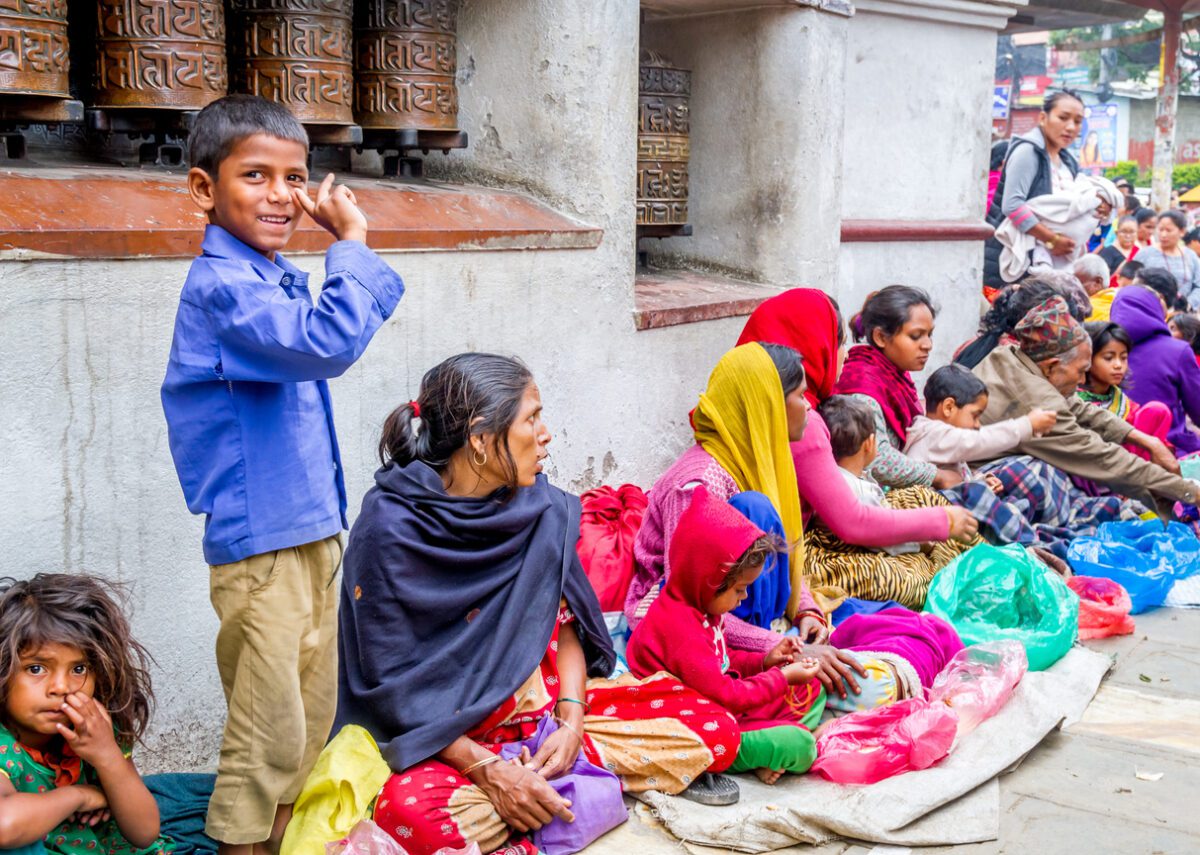












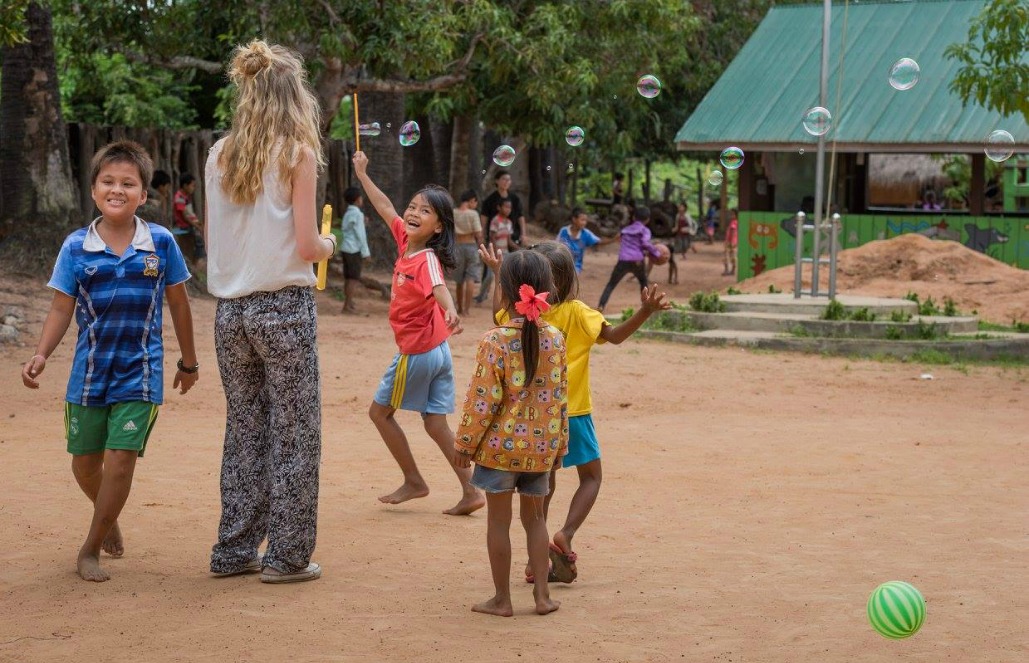
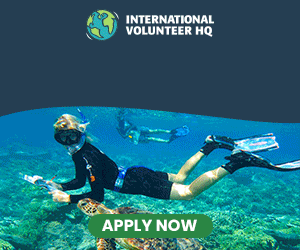
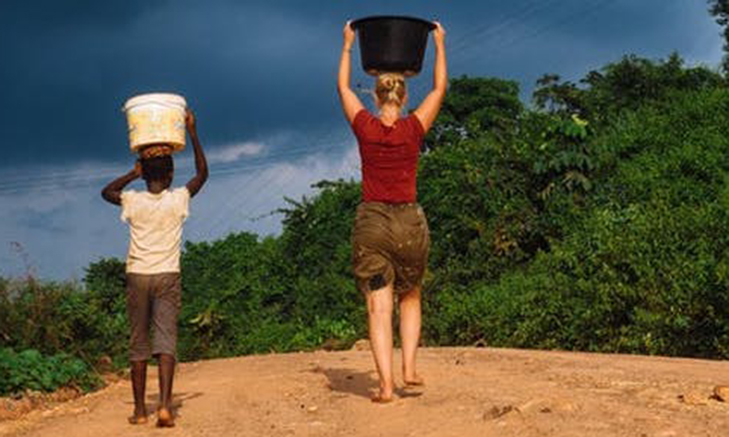

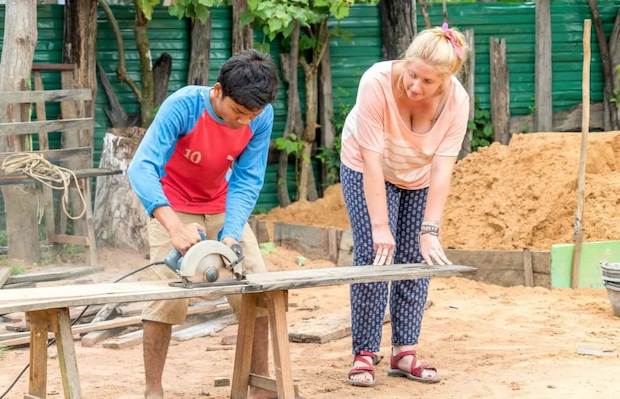
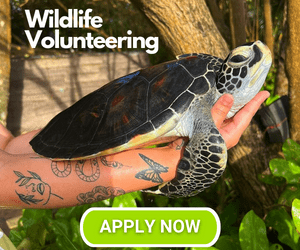
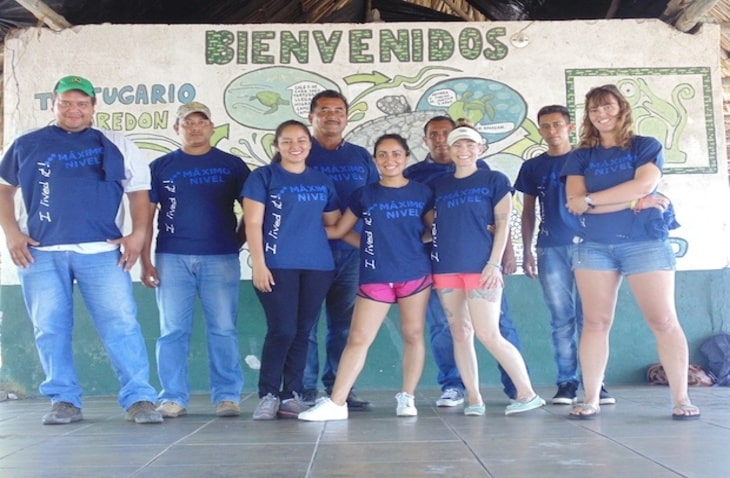

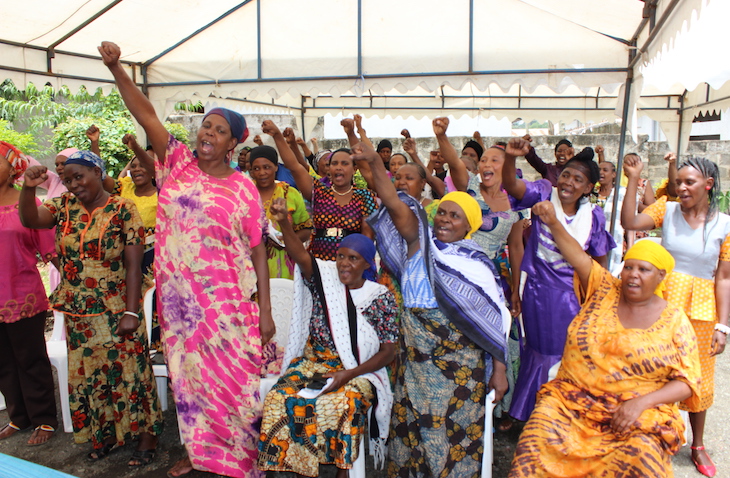
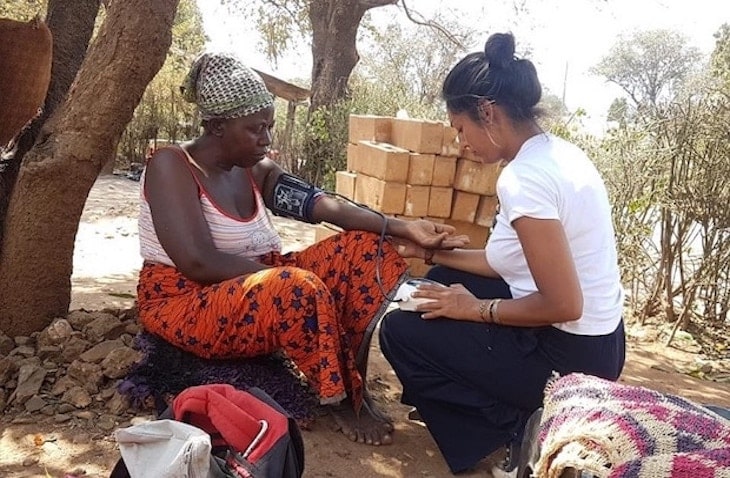
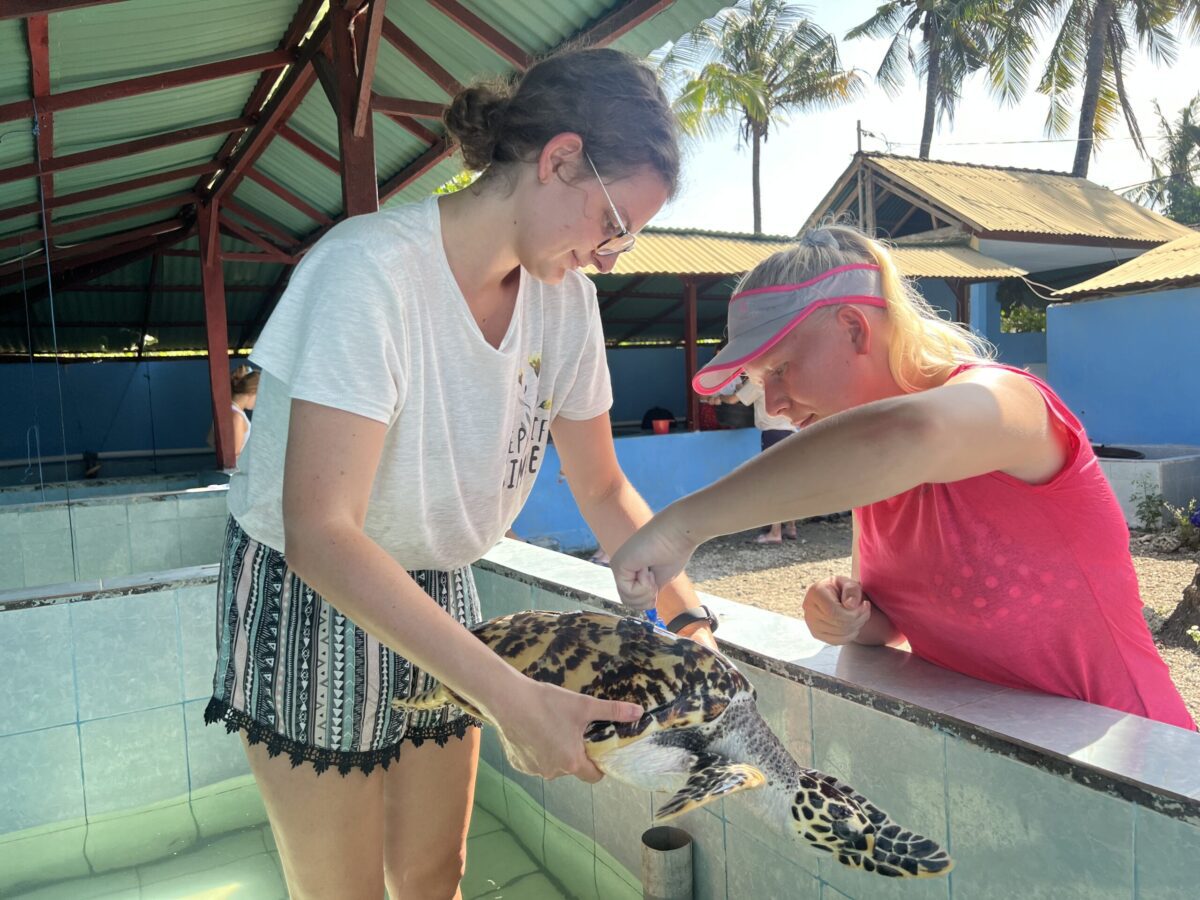
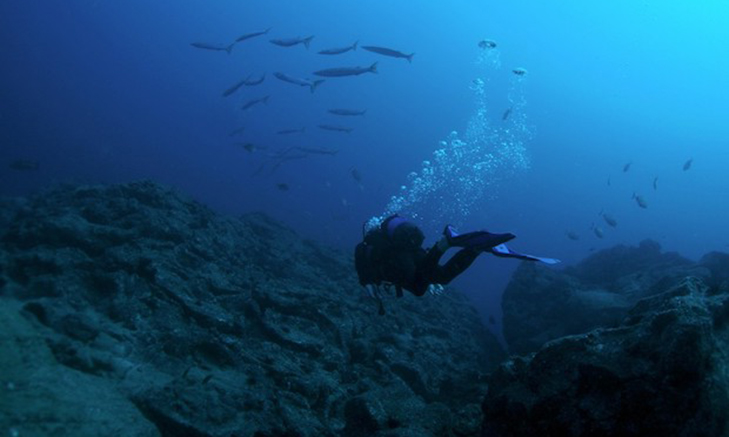

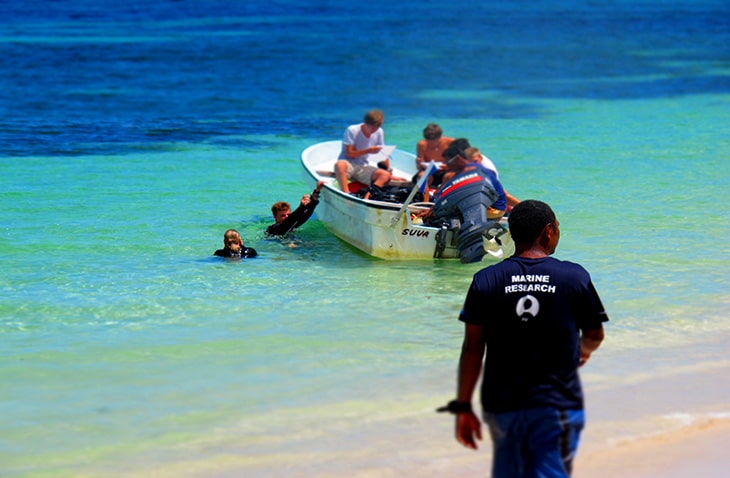







Munira Maricar · Travel Writer
With an international living background spanning Singapore, Qatar, Japan, and Mexico, Munira enjoys sharing insights on immersive travel while emphasizing the vital role of cultural respect and ethical engagement. Her extensive experience offers a unique perspective that inspires others to explore the world through service, ensuring that every journey respects and contributes positively to local traditions and communities.